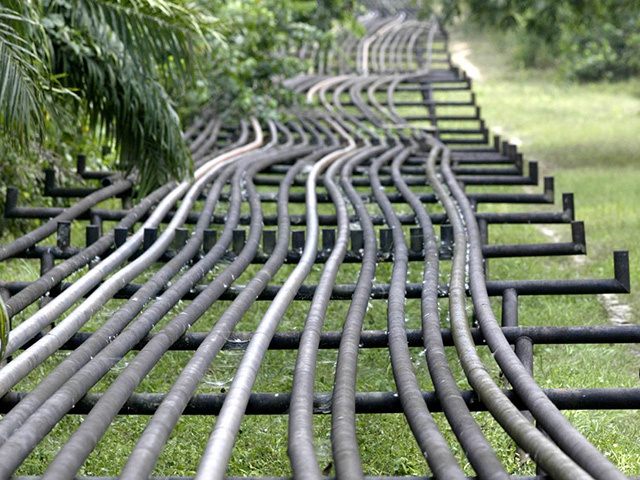
Nigeria’s economic slump deepened in the second quarter as a declining oil industry weighed on output.
Gross domestic product in Africa’s most populous country contracted by 2.1 percent in the three months through June from a year earlier, the Abuja-based National Bureau of Statistics said in an e-mailed statement on Wednesday, after shrinking 0.4 percent in the first quarter. The median of 17 economist estimates compiled by Bloomberg was for a 1.6 percent contraction.
Nigeria suffered a revenue squeeze after oil prices slumped by half since mid-2014, and crude exports fell by over 20 percent in the second quarter as militants in the Niger River delta blew up pipelines and reduced output. This was exacerbated by Central Bank of Nigeria’s currency peg that led to a lack of dollars in the economy, curbing imports and causing shortages from fuel to industrial materials.
“Oil prices averaged lower in the second quarter compared to the period in 2015 and oil production tanked,” Raza Agha, an economist at VTB Capital Plc in London, said in an e-mailed response to questions before the data was released. “The economic backdrop with respect to currency markets, exchange rate and private-sector borrowing continued to deteriorate in the second quarter.”
The central bank removed its 197-199 naira to dollar peg on June 20 after more than a year, causing the currency to loose more than one third its value. The Monetary Policy Committee increased its benchmark rate by 200 basis points to 14 percent last month to help prop up the naira and fight inflation that’s surged to the highest in more than a decade, even as the economic outlook deteriorated.
The slump in oil, the nation’s biggest revenue earner, as well as shortages of foreign currency and power could cause the economy to shrink 1.8 percent this year, according to the International Monetary Fund. That would be Nigeria’s first full-year contraction since 1991, according to data from the nation’s statistics agency.
“The worst of the fuel shortages came in the second quarter, which will have hit output,” John Ashbourne, an economist at London-based Capital Economics Ltd., said by e-mail before the release of the data.
While the government planned to stimulate the economy with a record budget of 6.1 trillion naira ($18 billion) budget this year, it delayed approving the spending plans as President Muhammadu Buhari haggled with lawmaker over allocations.
The government collected 1.16 trillion naira in revenue, or about half of what it expected, in the second quarter compared with 1.27 trillion naira in the previous three months, the central bank said in a report Aug. 26.